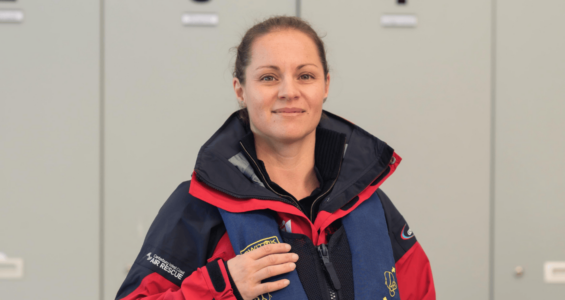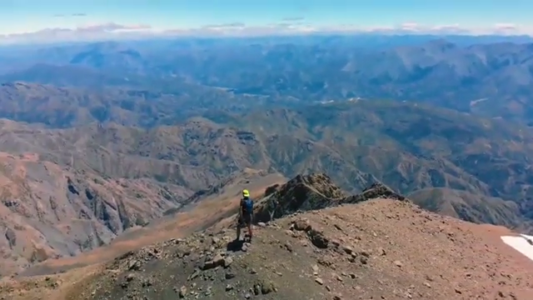He’s one of the West Coast’s most highly trained medics, but how did this Argentinian, his English wife and their seven children come to call Greymouth home?
Hernan Holliday has been a paramedic for nearly 30 years. He’s worked in Argentina, London and Wellington. But he’s found his home on the West Coast.
“We love it here. We have so much scenery – hills, lakes, rivers, creeks, mountains, beaches. We have nearly everything we need. And I love the weather. I know that’s ironic as there’s a lot of rain, but the days are beautiful,” Hernan says.
Hernan is one of three Critical Care Flight Paramedics on the West Coast. All three work for the ROA Mining Rescue Helicopter, operated by GCH Aviation.
Originally from Argentina, Hernan was working as a paramedic in London when he and his family started working on the idea to move abroad for a “better life”. He saw an advertisement in a paramedic magazine (Ambulance UK) for a job in Wellington Free Ambulance and applied.
Hernan moved to New Zealand in 2009 with his wife and two children. He worked for Wellington Free Ambulance crewing the Life Flight Westpac Rescue Helicopter and road ambulances for 10 years, but he always wanted to move south.
“Coming from Argentina, I often travelled to the Patagonia region on climbing adventures. The South Island and its Southern Alps felt like home.”
When Hernan and his growing family saw an opportunity for an intensive care paramedic role in Nelson, they jumped at the chance. But it didn’t last long.
“While I was in Nelson I was asked to help with cover on the West Coast working as a Critical Care Flight Paramedic on the ROA Mining Rescue Helicopter. I loved it. So, when I saw a job for a full-time flight paramedic on the Coast, I knew it was for me.”
Hernan moved to Greymouth in 2019 and quickly settled into the West Coast community. He, his wife and their now seven children (ranging in ages from 4 to 18 years) are proud to call the West Coast – and New Zealand – home.
It’s Hernan’s family, along with his rescue helicopter crew, who support him through tough days at work.
“When we have a big or complex job, we usually debrief it with the crew; I also know I can talk it through with my wife.
“Some jobs can still sit with you after many, many years. When you think about them it
may still bring a tear sometimes. Those jobs when you tried but couldn’t save someone are the hardest. But you learn to debrief and look after yourself and your team.”
Hernan remembers early in his career being the first ambulance paramedic to arrive at the scene of a 737 crash.
“That was terrible. I can still remember a lot of things.”
But he says in those tough moments their training kicks in.
“The thing with this job is that every mission is different. Even if you go back to the same place, it will be a different patient, a different kind of job. Or if you go to a similar event, you’ll be in a different place. And everything changes so quickly.
“You have to be able to think out of the box, and you always have to have a back-up plan. Asking yourself ‘What’s next?’ We have to make quick decisions in the moment, but safety always comes first.”
And while teamwork is vital, Hernan says the job can be isolating.
“At times you can be on your own, being winched out to a patient. And you might not know how long you have to be there for. But you cannot do the job without a team; you have to rely on your crew – and my crew are awesome.”
As well as being mentally demanding, the rescue helicopter crew must be physically fit to keep up with the demands of the job.
“I run often with my wife; we also do a lot of biking – and every day we walk the dog!”
Hernan knows more than most just how vital the rescue helicopter is to the West Coast.
“Very often when we arrive to a patient they say, ‘Thank god you’re here’. We do whatever we have to do for the patient to keep them safe and help them have a good outcome.
“Our patients are so thankful and whenever they ask how they can thank us, I tell them they can donate to the Canterbury West Coast Air Rescue Trust. Thanks to the Trust, we can provide this lifesaving service to people here on the West Coast.”






